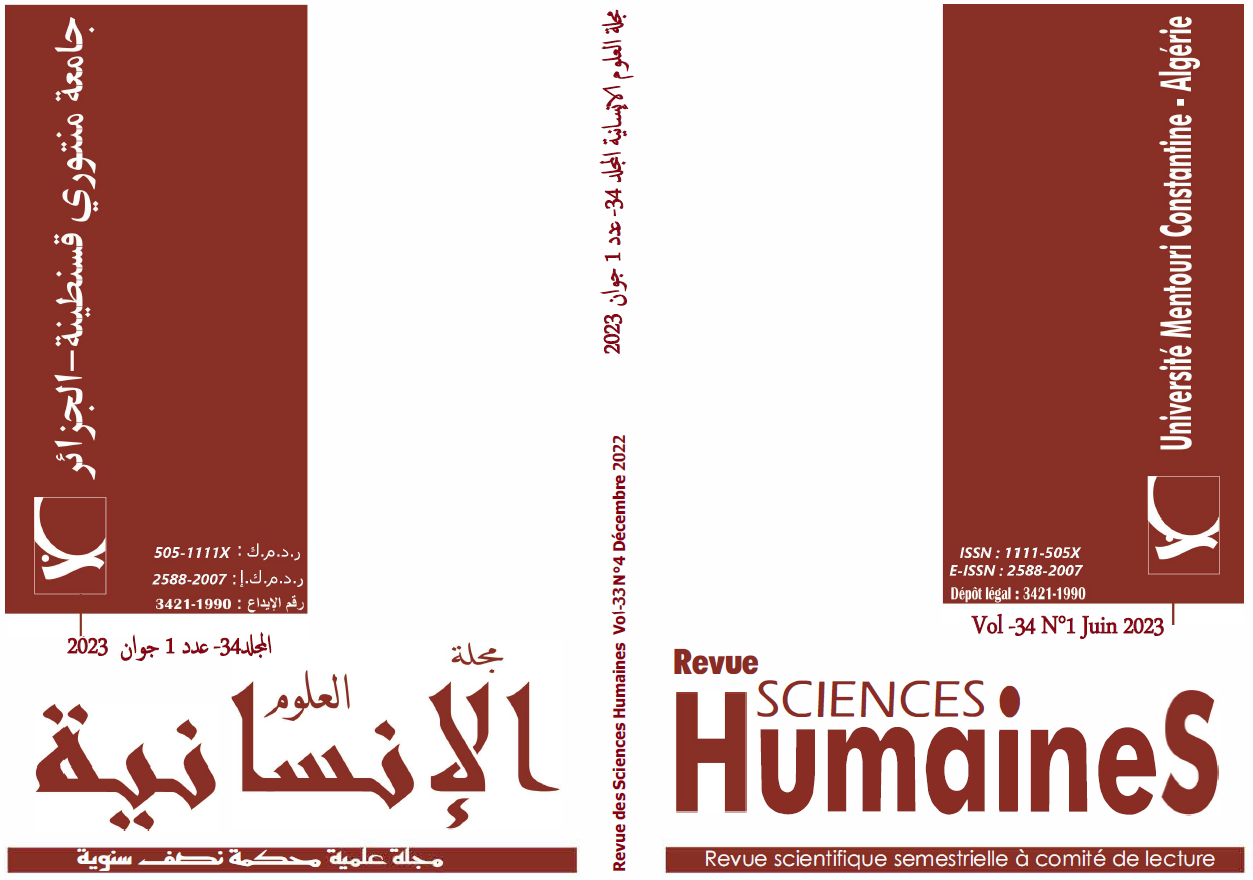Preserving water reserves by collecting and using rainwater
Study of the state of public equipment, especially educational ones
Keywords:
rainwater harvesting, public equipment, water preservation, Water shortage, Practical solutionsAbstract
Enter With the increase in world population; it has reached, according to the latest statistics, 08 billion people [1]. And therefore the phenomenon of climate change and global warming has worsened [2], as well as the rise in temperatures, which has led to a drop in the level of drinking water and irrigation water at the same time, which aggravates the problem of water scarcity and threatens to spread future wars [3].
It is important for us, as intellectuals, to think seriously about practical and appropriate solutions for our region and our cities and within the framework of our intellectual, scientific and technological capacities, in the sense of finding practical solutions that can be embodied and carried out in the short, medium and long term.
This article is the conclusion of a long research on practical (operational) solutions and their application at the level of public equipment, in particular schools (educational), so that we can contribute to the collection and exploitation of rainwater, on the one hand, and restore a general culture to our children.
Downloads
References
: ما بعد ندرة المياه: الامن المائي في الشرق الأوسط وشمال أفريقيا، عرض عام مجموعة البنك الدولي، تقرير عن التنمية في الشرق الاوسط وشمال أفريقيا، 2022. https://openknowledge.worldbank.org/bitstream/handle/10986/27659/211144ovAR.pdf
: جمال أحمد الحسین، ٢٠٠٤ م، الإنسان وتلوث البیئة، دار الأمل للنشر والتوزیع، الأردن
: بريشي بلقاسم، الحماية الدولية لمواجهة ظاهرة الاحتباس الحراري، أطروحة مقدمة لنيل شهادة الدكتوراه في العلوم تخصص قانون العلاقات الدولية، سيدي بلعباس 2017 - 2018 .
: site web consulté le:06/07/2022 ; http://cultivoo.fr/index.php/developpement-durable/eau/1122-les-utilisateurs-deau-douce?showall=&start=1
: site web consulté le: 03/04/2022 ; http://cultivoo.fr/index.php/developpement-durable/eau/1122-les-utilisateurs-deau-douce?showall=&start=1
: site web consulté le: 22/08/2022 ;TAMRABET. (2011) Contribution A L’étude De La valorisation Des Eaux Usées En Maraichage 2011.
: site web consulté le: 17/01/2022 : ONA,(2019). Tableau de bord exploitation du mois de janvier 2019.
: site web consulté le: 24/12/2021 ; https://www.algerie-eco.com/2016/04/24/172-stations-depuration-lalgerie-premier-pays-dafrique-domaine/
: site web consulté le: 11/05/2022 ; https://www.memoireonline.com/11/13/7935/m_Traitement-des-eaux-usees-urbaines-par-boues-activees-au-niveau-de-la-ville-de-Bordj-Bou-Arreridj16.html
: site web consulté le: 05/05/2022 ;https://www.algerie-eco.com/2016/04/24/172-stations-depuration-lalgerie-premier-pays-dafrique-domaine/
: WWAP (Programme mondial pour l’évaluation des ressources en eau). 2017. Rapport mondial des Nations Unies sur la mise en valeur des ressources en eau 2017. Les eaux usées – Une ressource inexploitée. Paris, UNESCO. Titre original : The United Nations World Water Development Report 2017. Wastewater – The Untapped Resource.
: site web consulté le : 03/04/2022 ; http://eduterre.ens lyon.fr/ressources/scenario1/planetebleue/techniques_desalinisation
: site web ; www.google.com.
: site web consulté le: 03/09/2022 ; https://www.ecotech-construction.fr/recuperation-eaux-pluie/
: site web consulté le : 03/10/2022 ; https://www.siavos.fr/assainissement/collecte-et-traitement-des-eaux-usees
: site web consulté le : 24/08/2022 ; https://www.sesam21.fr/assainissement-collectif/comment-ca-marche
: site web consulté le : 24/08/2022 ; https://sswm.info/ar/sswm-solutions-bop-markets/affordable-wash-services-and-products/affordable-water-supply/rainwater-harvesting-%28urban%29
: site web consulté le : 24/08/2022 ; https://www.ecotech-construction.fr/recuperation-eaux-pluie/
Downloads
Published
How to Cite
Issue
Section
License
Copyright (c) 2023 Human Sciences Journal

This work is licensed under a Creative Commons Attribution-NonCommercial 4.0 International License.
















